10 Music Reviews
Anthony Atkinson, Loyalty Songs (Candle)
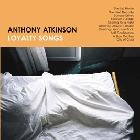
A gifted storyteller, in song, is a gift. Someone who sings and plays pop music with grace is, too. So are songs that'll stay in your head forever. On Loyalty Songs, Anthony Atkinson displays all these gifts, within amiable songs in the general vein of fellow Australians, and Candle Records labelmates, the Lucksmiths and Darren Hanlon. Pedal steel, horns, and harmonies add to the musical mise-en-scene, as does Atkinson's considerate singing style and an occasional rush of energy, as on the opening track, "She Let Him In." The songs are filled with recognizable people/feelings/moods: people who are lost, seeking affection, wondering about the future – a tagline sort of lyric, for the musical atmosphere as well, is this one: "those melancholy days / spent dreaming of the next decade." These songs can be breezy and light, seriously sad, evocative of landscapes, thoughtful about contemporary life. The last song, "City of Gold," is a particular treasure, striking the perfect final note. It's a pretty, hopeful, elegiac hymn to a departed sports star, with striking lyrics like "I guess he's going home to the city of gold / where the streets are lined with our favorite sons." It's smart, inspiring, thoroughly rewarding, like the whole album. – dave heaton
Feathers, Synchromy (Hometapes)
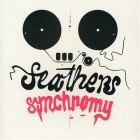
The "instruments used" list in the liner notes for the Florida-based group Feathers' Synchromy EP includes moogs and modulars, farfisas and xylorimba. They've got enough retro synthesizers for a space launch, and that's actually what they do: jam their way into another world. The essential trio is augmented by five other musicians, including a trio of string players and John McEntire, of Tortoise on drums and synth. Generally speaking, Feathers and friends find a 'Krautrock'-like groove but also keep it open-ended, airy, hazy. Their focus here is haunted atmosphere and a future-show, often quite slow, groove, but they also leave room for surprise, including a cliffhanger ending driven by the strings. – dave heaton
J. Forte, Secret Pop (Don't Talk)
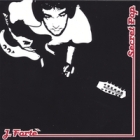
With the now-defunct DC band Ape House, J Forte played a lovesick style of power-pop, Weezer-ish rock with a sense of humanity and sadness, and a sense of humor too. On this solo album, he's doing much the same, with a home-recorded sound and a softer demeanor, but otherwise quite similar. That softer style makes the sadness more pronounced, downplays the dumb-fun humor of the rock-band approach, but maintains the energy rush of rock guitar and the appeal of big catchy hooks. Forte handles most everything here, besides a drummer on 5 of the 12 songs: vocals, guitars, bass, keyboards, percussion. "Secret" in the title could refer to that homemade approach, the feeling that's he's been working on these recordings in his bedroom or basement. Or it could refer to the inner longings within the songs, how he's singing secrets. But…and you know what's next…pop music this good shouldn't be kept secret. – dave heaton
Great Aunt Ida, How They Fly (Northern Electric)
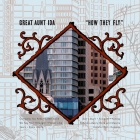
Great Aunt Ida's music generates a light twilight mood, the glimmer of the sun, or moon. It's romantic, melancholy, and graceful: orchestral pop with a piano-ballad side. Ida Nilsen's lovely voice is set with a piano and a quiet assortment of carefully arranged instruments: trumpet, guitar, strings. The lyrics she sings are like an interior monologue of life and its difficulties. They're consistently clever and touching. "Flower Like Yours" is an excellent In the Mood for Love-inspired number ("honey you remind me of a dream I whispered into a hole in a tree / memory of something I could feel was missing"). The song after it, "Extra Hours", might be my favorite, for the shy intensity of it, and the unlikely beauty of its melody. This is quiet music with presence, plus an involving continuum of stories, of longing, love, curiosity, and rebirth. There's an ease to the music, and it's also emotionally affecting, all the way through to the hopeful final song, an airplane flight towards imagined better times: "Clouds break today / heart reach over these great lakes." – dave heaton
Hi-Tek, Hi-Teknology 2: The Chip (Babygrande)
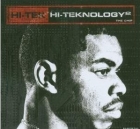
Hi-Tek's first solo album, Hiteknology was a streamlined lark of a soul album flavored with hip-hop. With this sequel, he's trying to up the ante, within that same basic framework. There's more guest stars, denser production, even appearances on the mic by Hi-Tek himself. Beat-wise, he again displays a remarkable knack for flow and melody. And the use of a soul band, the Willie Cottrell Band, on numerous tracks shows ambition to stretch the soundscape out, ambition which often pays off. He does overly rely on a particular formula – guest MC + indistinct R&B hook – to the album's detriment. And some of the guest MCs contribute fluff, especially Q-Tip's verse on the opener "Keep It Moving." And also The Game's appearance on "1-800 Homicide", a different kind of fluff (thug fluff) in that he's trying so hold to hold onto his tough-guy face (even lamely turning Ice Cube's recent comeback line into "I resurrected this gangsta shit / and this the motherfuckin' thanks I get?") that you just tune him out. The track itself is nice, though, and that's the thing with this album: it's often about taking the exciting with the dull. Not always, though…some of these tracks are just plain exciting. "March" with Busta Rhymes is better than most of Busta's last three albums. "Josephine" seems like a routine girl-lost-to-drugs story, but Ghostface Killah and Pretty Ugly light it up. Talib Kweli is on two mellow love songs and sounds great on both. And the playful "Think I Got a Beat", featuring Hi-Tek's son creating a beat, is priceless fun. Even the overblown, though heartfelt, music-tribute "Music for Life" has a decent Nas verse. Overall, Hiteknology 2 is more like an enjoyable enough vacation day at home than a full-blown trip somewhere – it's not mind-blowing, but solid. – dave heaton
Lovejoy, England Made Me EP (Matinee)
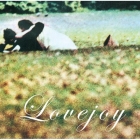
Lovejoy has a winning track record of smart, melancholy pop articulating feelings and ideas. With this electronic-flavored, hopeful-in-nature EP they do nothing to tarnish that. It starts with the brilliant mood piece/love letter "Brightness Falls." Richard Preece's understated delivery, an open-hearted whisper, conveys hope ("you are my savior in a taxi / my vision of reality," he begins) while beats propel a romantic tone. That song alone is an instant classic, but there's more: a Pet Shop Boys-ish (mostly) instrumental, an outstanding cover of the June Brides' "In the Rain", and another dreamy pop ballad, the title track, that's just as on-the-mark and delicately transporting as the first track. It has a great melody, a historical/cultural scope that matches the expansive personal one, and again a hazy, beautiful atmosphere. – dave heaton
Maher Shalal Hash Baz, Faux Depart (YikYak)
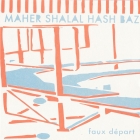
Within the naivist pop of Maher Shalal Hash Baz, it always seems like the players have just picked up their instruments for the first time. Tori Kudo writes clever, quite evocative poems – and the compositions too, more carefully than it seems – and sings them, adding another level of creative energy to the music. This album has them in Olympia, Washington, playing with the Dub Narcotic folk. That makes sense, given the stream of amateur DIY pop from that neck of the woods. The music here resembles warped marching-band kid's music / free jazz / garage pop – a wild ride. It's an EP, but with the emphasis on extended. "A song that begins with a mistake / like two birds calling to each other," read words inside the cover, and that describes their approach well – there's magic in stumbling. Their songs are wisps, breaths of air, but informed by thoughts of chance and unpredictability. They take a John Cage-meets-Calvin Johnson-meets Albert Ayler approach to folk-pop music, and the resulting music is always fascinating, always alert. – dave heaton
Mahogany, Connectivity (Darla)
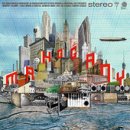
There's a time when you can get away with reeling off influences – in this case, Cocteau Twins, Stereolab, shoegazers, etc. – and calling it a review. And then there's a time when a band transcends that, making any kind of easy categorization not just lazy but impossible. That's what Mahogany has done with Connectivity, taken their music to an entirely new level. Sure, some influences can been read into the album, but those stand lightly within a purely unique sound. Mahogany's music displays an infectious pop sense, a future-looking scope, intricate arrangements, and a remarkable flow, in terms of mood and pace. The graphic design sense and architectural interest they demonstrate in their cover art and logos applies to their music, too. Synths, bass, and voices are arranged just right: aesthetically pleasing and intellectually stimulating. Their lyrics give voice to the city-planning theme and utopian visions of the city-of-the-future cover art. "Can you find the edge of this vast and complex land / even then, it won't compare to our strange and mental sands," one line goes. They're building a musical city of the imagination…or not building one, so much as presenting it to us whole. And this time around, the city of Mahogany's creation glows with a brand new light, even brighter than before. – dave heaton
Liam Singer, Our Secret Lies Beneath the Creek (Tell-All)
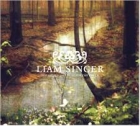
With his second album Liam Singer is again bridging genres. His music has an operatic style, with a song narrative following a baroque melody, but it's also intimate, direct, carrying the air of stripped-down singer/songwriter music. His new-music compositions seem to be getting more daring, and fuller, while also combining more seamlessly with story/songs that carry a direct emotional force. I imagine he could write an amazing film score, or sit down in a room and sing you a hard-hitting song on his own. There's a sense of drama to this music, but also one of beauty. The album was partly recorded in a church, and does have the sense of grace which that implies, but there's also an eeriness at work, and often within the same song (as on the dynamic "Falling Forever/An Arc of Slow Pinwheels"). His voice and another, more operatic female voice soar along with piano, horns, and much more. More is the word for the difference between this and is also rewarding first album; this time all aspects of his music have heightened and deepened, making an even greater and longer-lasting impression. – dave heaton
Yoko K, 012906 (Asahra Music)
Most people associate electronic music with either Europeans or the groundbreaking House scene that originated from Detroit more than two decades ago. Lost in the shuffle is the pioneering achievements of the Japanese collective Yellow Magic Orchestra (YMO) from the late ‘70s. YMO utilized synthesizers and sequencers as both artist’s paintbrushes and scientist’s tools. So it’s not surprising at all that Yoko K. hails from one of the countries that originated techno-pop. The difference, though, is that she is less interested in the surgeon’s precision of art rock than the emotional highs of classical music and the physical liberation of dance. On 012906, Yoko K. balances on a see-saw between the artistry of musical composition and the transcendence of night clubbing. In a few tracks, such as “Blues of Grande Chai,” she combines both, letting herself go against a tide of ethereal keyboards but keeping her focus; although the beats produce a mind trip, they are not chaotic. There’s even a sense of childlike glee in the track. On “Yoake,” Yoko K.’s minimalist, poetic narrative is colored by its shining atmospheric rhythms. Detractors often chastise ambient techno for its coldness, but on 012906 you can feel Yoko K.’s infectious enthusiasm and overall affection for music. - michael sutton
Copyright (c) 2006 erasing clouds |
|